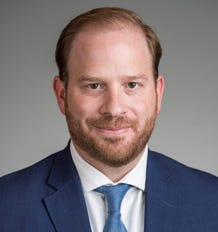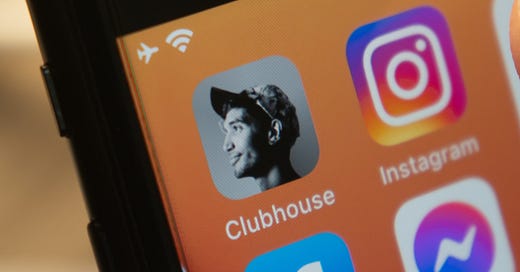On our weekly publisher’s and editors’ podcast, The Roundtable, over the past year, the topic of COVID has always driven more traffic than anything else. We spent about three weeks at the beginning of the pandemic being cautious—until it became apparent that COVID was quickly morphing into an excuse for the Left to suck as much power and control as it could into its impetuous vortex (to steal a wonderful phrase about Congress from Publius in Federalist 48).
Left-wing governors (of both parties) use the pandemic to govern in a quasi-permanent state of emergency, sweeping aside the separation of powers—long a goal of progressivism. Indeed, the pandemic-driven acceleration of government by “state of exception” across the country should have caused considerably more bipartisan alarm than it has.
A hallmark of our now ubiquitous and interminable emergency government is the lockdown. Across most U.S. states, the populace has been subject to various forms of on-again, off-again quasi-house-arrest for nearly a year, even though freedom of association is a bedrock right of any free people that hopes to govern itself. Derivable from the language of the 1st Amendment, freedom of association is also a natural right, and would exist even if the Bill of Rights (or government) did not. Republican government is impossible if people cannot congregate to deliberate, plan action, solve problems, petition their rulers, and organize. Another natural right, freedom of conscience (embodied in the 1st Amendment’s free exercise clause), also requires freedom of association in congregations, to say the least.
We are political animals, too, as Aristotle wrote over 2000 years ago. Gathering to deliberate about what is good and just is a necessary component of our flourishing and happiness. Gathering to worship is one of the most ancient components of human being. Colleagues and friends of Claremont have written well about how the 1619 Riots of last summer and fall were fueled not only by the ideological and political priming by—and lies of—the Left, but also by the demographic dynamic of stultifying and soul-sucking lockdowns. Christopher Caldwell put it well in his essay for the Claremont Review of Books, “America, Cowering”:
Under the coronavirus quarantine, the kids’ virtual world of Instagram and Twitter and Snapchat became everyone’s reality. We are told that practically every 20-something in the country moved back in with his parents sometime in March. But in terms of mores, culture, and habits, it was the parents who moved in with the kids, often learning from them how to get food—and news—exclusively online. Baby Boomers and other oldsters had no way of understanding that all the stories their kids were sharing in the wake of the Floyd killing had been pre-magnified on social media, and even pre-censored. The system of friending/unfriending, liking, following, muting, etc., filters conversational groups, making these platforms places of affirmation and conformism, not contestation and debate. Now a cascade of peer pressure seemed to sweep the whole country away.
Which brings us to the newest social media app that is all the rage, Clubhouse. Most of the readers of American Mindset are on the cutting edge of digital (and social) media. But for those unfamiliar with this year-old app, Clubhouse is a platform for audio chatrooms with an intuitive and slick user interface. Moderators and commenters talk, and audience members listen. You follow friends and others you might like to hear from and in turn can view what that network of people is doing in various chat rooms at any given hour of the day. Moderators can “pull” people up from the audience and make them commenters (or even moderators—sometimes with unpleasant effects—just ask progressive journalist Michael Tracey). One can bounce around from chat to chat, dropping in and out of arguments or conversations. We have all executed an “Irish exit,” from a party at one point or another, a practice nicely captured on the chat room exit button in Clubhouse: “Leave quietly.”
Clubhouse is invite-only and really started taking off in 2021. It can be an exhilarating experience when one first joins and settles into its rhythms. It is strangely intimate, even in large rooms, surreal, free and free-wheeling, and (like Twitter) often an interesting mix of public and pseudonymous users that makes for surprising openness and crowd-sourced insight on all manner of topics. This also makes it dangerous, according to the New York Times. “Unfettered conversations,” you see, may undermine the official narrative of today’s Left, which is the approved national narrative, especially on matters of racial and social “justice” and “equity.”
Clubhouse also avoids, for the most part, the danger of the infinite machine memory of our age, preserving your every online utterance for future scouring for wrongthink. People can, of course, record any room they are in (see the recording linked above of a bunch of racists excoriating someone for “racism”), but the norm is for the conversation not to outlast, on any server, its real-time duration. In other words, Clubhouse is a vehicle for freedom of association and deliberation that transcends time and place. It can be a powerful tool for the transmission of ideas—dissident, orthodox, and in between—and for organizing and planning even in a time of pandemic and continued lockdowns.
So, the question is: When will the powers that be shut it down? Clubhouse is a small island of free thought and conversation in a sea populated by the Twitters and Facebooks, institutions dedicated to the proposition that you must not be allowed to consume “misinformation”—that is, information they deem a threat to “our democracy,” or the next pious cause du jour.
The lesson of Clubhouse is twofold. First, there remains much opportunity for digital technology to surprise, delight, and even to carve out new space for the digital public square, thus strengthening some of the sinews of republicanism even while so many of us remain under siege by incompetent public health “experts” and power-hungry, anti-science politicians. The second lesson: across most of America we need a Reconquista of the public square IRL (“in real life,” as the kids say), to reclaim our God-given and natural right to gather in public with our fellow citizens—both to deliberate about what is good and just and plan to get it done, as well as to lay the foundations that will decide whether we preserve American self-government or get steamrolled by the woke leviathan.






Joined